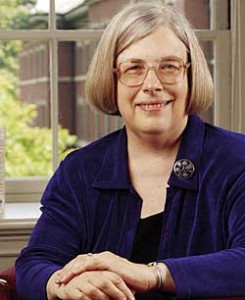Casey Mulligan
The Redistribution Recession
Major subsidies and regulations intended to help the poor and unemployed were changed in more than a dozen ways after 2007. Economist Casey B. Mulligan argues that many of these changes were reasonable reactions to economic events, with the intention of helping people endure the recession, but they also reduced incentives for people to work and businesses to hire. He measures the startling changes in implicit tax rates that resulted from a labyrinth of new and expanded “social safety net” programs, and quantifies the effects of these changes on the labor market and the economy. He also reveals how borrowers can expect their earnings to affect the amount that lenders will forgive in debt renegotiation, and how this has acted as a massive implicit tax on earning. He explains how redistribution in the forms of subsidies, taxes and minimum-wage laws profoundly altered the path of the economy and made the recent recession one of the deepest and longest in decades.
changes in implicit tax rates that resulted from a labyrinth of new and expanded “social safety net” programs, and quantifies the effects of these changes on the labor market and the economy. He also reveals how borrowers can expect their earnings to affect the amount that lenders will forgive in debt renegotiation, and how this has acted as a massive implicit tax on earning. He explains how redistribution in the forms of subsidies, taxes and minimum-wage laws profoundly altered the path of the economy and made the recent recession one of the deepest and longest in decades.
Casey B. Mulligan is a Professor of Economics at the University of Chicago. He received his Ph.D. in economics from the University of Chicago in 1993 and has also served as a visiting professor teaching public economics at Harvard University, Clemson University, and the Irving B. Harris Graduate School of Public Policy Studies at the University of Chicago. He is affiliated with the National Bureau of Economic Research, the George J. Stigler Center for the Study of the Economy and the State, and the Population Research Center. He has received awards and fellowships from the National Science Foundation, the Alfred P. Sloan Foundation, the Smith-Richardson Foundation, and the John M. Olin Foundation. His research covers capital and labor taxation, the gender wage gap, Social Security, voting and the economics of aging. He is the author of Parental Priorities and Economic Inequality and writes blog entries for the NY Times and blogsupplyanddemand.com.
Professor Mulligan will speak Friday, February 20th at 3:30 p.m. in the Black and Gold Ballroom, Buntrock Commons.
Link to live streaming of this lecture: https://www.stolaf.edu/multimedia/play/?e=1213
Steven Fazzari
Income Inequality, The Great Recession, and Slow Recovery
In 2008 and 2009, the US economy experienced its deepest recession since the 1930s and the recovery from what is now called the Great Recession has been disappointing. Growth has been slow; the share of the working age population that is employed is much below its level before the recession even though interest rates have been kept unusually low in an attempt to bolster the recovery. Moreover, a cen tral feature of the US economy in recent decades has been a historic rise of income inequality.
tral feature of the US economy in recent decades has been a historic rise of income inequality.
In this talk, Professor Fazzari will link these salient aspects of the US economy. He will summarize research that associates the large run-up of household debt prior to the Great Recession with the falling share of income earned by the bottom 95 percent of the income distribution. He will show that the end of this borrowing boom coincided with the onset of the Great Recession, and that the unusually large decline in consumption spending at this time occurred among the group of households whose income share was dropping. Finally, he will show that that the large decline in the share of income earned by the bottom 95 percent that has occurred since the early 1980s is now holding back consumption spending and is thus important in explaining the slow recovery from the Great Recession.
Steven Fazzari is the Bert A. and Jeanette L. Distinguished Professor of Economics and Associate Director of the Weidenbaum Center on the Economy, Government, and Public Policy at Washington University in St. Louis. He received his Ph.D. in economics from Stanford University in 1982. Professor Fazzari’s research explores two main areas: the financial determinants of investment and R&D spending by U.S. firms and the foundations of Keynesian macroeconomics. His published articles appear in a wide variety of academic journals and books. Fazzari’s co-edited 2013 book from Cambridge University Press investigates the sources and responses to the U.S. “Great Recession” that began in late 2007. A recent search found more than 1,800 citations to Fazzari’s publications in the Research Papers in Economics database (over 8,000 in Google Scholar). In addition, his research and commentary on economic conditions and public policy has been highlighted in the national and international media, with recent attention to the link between rising income inequality and slow growth.
Fazzari teaches macroeconomics, from introductory freshman courses to Ph.D. seminars. His teaching awards include the Missouri Governor’s award for excellence in university teaching, the Emerson Award for teaching excellence, and Washington University’s distinguished faculty award. He has been active on University committees and task forces throughout his career. Fazzari served six years as chair of the Department of Economics. He has recently begun an exciting job as chair of the newly founded Department of Sociology.
Professor Fazzari will speak Friday, February 20th at 7:00 p.m. in the Black and Gold Ballroom, Buntrock Commons.
Link to live streaming of this lecture: https://www.stolaf.edu/multimedia/play/?e=1214
Theda Skocpol
The Inequality Challenge in American Politics and Public Policy
Theda Skocpol (PhD, Harvard, 1975) is the Victor S. Thomas Professor of Government and Sociology at Harvard University. At Harvard, she has served as Dean of the Graduate School of Arts and Sciences  (2005-2007) and as Director of the Center for American Political Studies (2000-2006). In 1996, Skocpol served as President of the Social Science History Association, an interdisciplinary professional group, and in 2002-03, she served as President of the American Political Science Association during the centennial of this leading professional body. In 2007, she was awarded the Johan Skytte Prize in Political Science for her “visionary analysis of the significance of the state for revolutions, welfare, and political trust, pursued with theoretical depth and empirical evidence.” The Skytte Prize is one of the largest and most prestigious in political science and is awarded annually by the Skytte Foundation at Uppsala University (Sweden) to the scholar who in the view of the foundation has made the most valuable contribution to the discipline. Skocpol has also been elected to membership in all three major U.S. interdisciplinary honor societies: the American Academy of Arts and Sciences (elected 1994), the American Philosophical Society (elected 2006), and the National Academy of Sciences (elected 2008). In addition to her academic roles, Skocpol co-founded in 2009 and is current director of the Scholars Strategy Network (www.scholarsstrategynetwork.org), a national organization that encourages public engagement by university-based scholars.
(2005-2007) and as Director of the Center for American Political Studies (2000-2006). In 1996, Skocpol served as President of the Social Science History Association, an interdisciplinary professional group, and in 2002-03, she served as President of the American Political Science Association during the centennial of this leading professional body. In 2007, she was awarded the Johan Skytte Prize in Political Science for her “visionary analysis of the significance of the state for revolutions, welfare, and political trust, pursued with theoretical depth and empirical evidence.” The Skytte Prize is one of the largest and most prestigious in political science and is awarded annually by the Skytte Foundation at Uppsala University (Sweden) to the scholar who in the view of the foundation has made the most valuable contribution to the discipline. Skocpol has also been elected to membership in all three major U.S. interdisciplinary honor societies: the American Academy of Arts and Sciences (elected 1994), the American Philosophical Society (elected 2006), and the National Academy of Sciences (elected 2008). In addition to her academic roles, Skocpol co-founded in 2009 and is current director of the Scholars Strategy Network (www.scholarsstrategynetwork.org), a national organization that encourages public engagement by university-based scholars.
Social Strategy Network Overview
Professor Skocpol will speak Saturday, February 21st at 9:30 a.m. in the Black and Gold Ballroom, Buntrock Commons.
Link to live streaming of this lecture: https://www.stolaf.edu/multimedia/play/?e=1215
This conference is funded by the social science faculty, the Institute for Freedom and Community,
and the David L. & Margery Ostrom Scheie Endowment .


You must be logged in to post a comment.